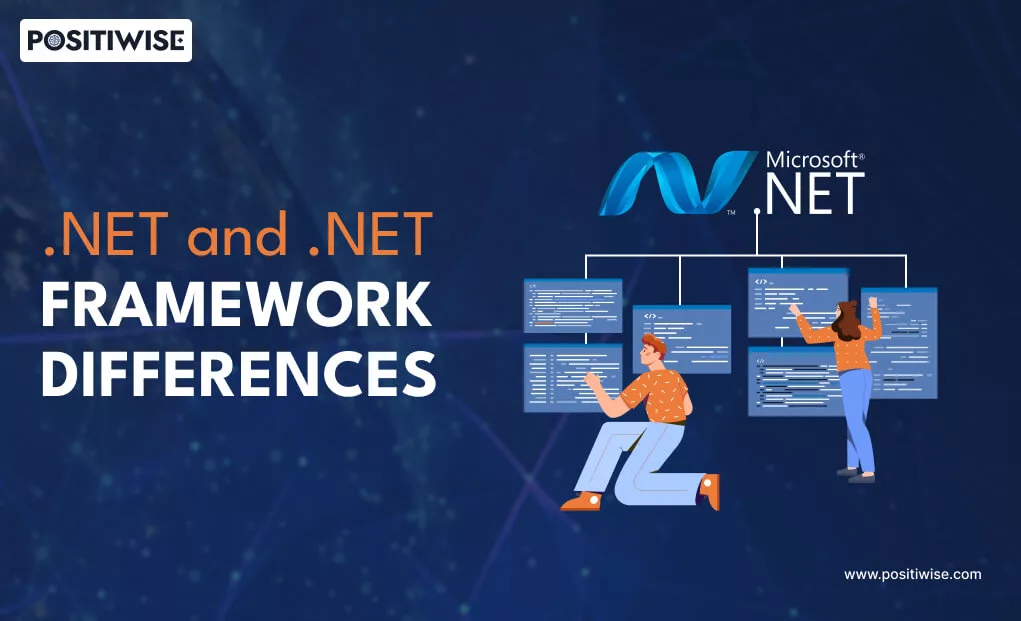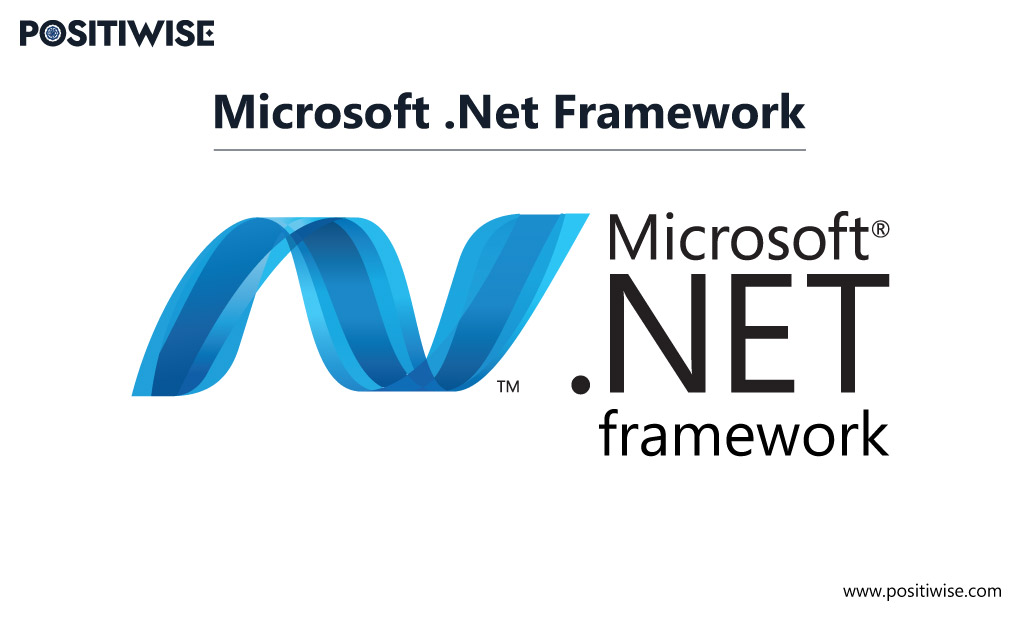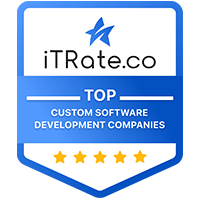Quick Overview:
The blog aids in understanding what is net and net framework along with the differences between them. In addition, as both technologies are from Microsoft, there are also some similarities between the two, which are also listed for better clarification two.
.NET and .NET Framework
.NET and .NET frameworks are used to develop business-oriented software solutions. From small to Fortune 500 companies, everyone is a true fan of these technologies. However, selecting one for app development does create quite a lot of confusion.
But now, every complexity will be resolved. Here, we have provided the difference between the .NET and .NET framework to help you understand the core concepts of each tech.
What is .NET and .NET Framework?
.NET and .NET framework are both software development technologies curated, powered, and maintained by Microsoft.
.NET is a platform that offers all the necessary tools, libraries, packages, and other components to create applications. It can be used to curate web apps, mobile apps, desktop software, games, IoT solutions, and more.
Furthermore, the .NET framework is also used for software development. Its principles are based on .NET, but it can only be used for desktop application development. Where .NET is an entire platform, it’s just a framework with significant components. Similarly, the .NET Framework is different from the .NET Core, as these two are also contrasting tech stacks.
The Differences Between .NET and .NET Framework
Here, we have differentiated the .NET and .NET framework on the basis of primary selection factors, such as performance, platform compatibility, data security, use cases, and mobile development.
1: Performance
In terms of performance, .NET is considered more efficient. With frequent updates, it has some amazing components like AOT, improved memory management, IL trimming, and more. All these functionalities support enhancing user-request execution and reducing loading time.
Contrastingly, the framework receives limited performance updates and has greater dependencies. As a result, it’s considered a bit slower than .NET.
2: Operating Systems Compatibility
.NET is compatible with all significant digital platforms and operating systems. It can be downloaded, installed, and utilized on macOS, Unix, Windows, and Linux systems. However, the framework is entirely Windows-oriented. You can only use it on Windows OS to create Windows-based applications.
3: Mobile App Development
Mobile applications are a must for every business to increase their reach and provide a better user experience. .NET has numerous technologies that help create mobile apps within a limited time and with limited resources. Xamarin and .NET MAUI are two of the most popular mobile app development techs under it.
On the other hand, the framework is primarily used for desktop software development, as it’s only Windows-compatible.
4: Data Security
Both technologies provide data security features. However, .NET security mechanisms are way more advanced, as they are regularly updated and aligned with the latest industry-required standards. However, the framework provides security features that are best suited for legacy systems or for the Windows platform.
In terms of data security, .NET can help you achieve a better rate of data integrity, confidentiality, and availability.
5: Use Cases
The use cases of both technologies are entirely contrasting.
.NET use case
- Microservices development
- Cross-platform compatible app development
- High-performance software creation
- Running of multiple .NET versions side-by-side
.NET Framework use case
- Development of a Windows-only application
- Required components or systems are only available for the .NET framework
- The server platform is only compatible with the .NET framework
A Quick Look Into the .NET vs .NET Framework
Here, we have a differential table to help you understand their differences quickly.
| Basis | .NET | .NET Framework |
|---|---|---|
| Performance | High performance due to lightweight architecture and less dependencies | Median performance as compared to .NET, due to high dependencies |
| OS Compatibility | Windows. Unix, Linux, and macOS | Windows Only |
| WCF Support | No | Yes |
| Security | New-age security mechanisms | Traditional security mechanisms |
| App Type | Console, web, mobile, desktop, microservices, and all other app development are possible. | Desktop and web applications are possible only |
| Professional preference | High for cross-platform app development. | Low for cross-platform needs. However, for Windows-only needs, it’s highly considered by experts. |
The .NET and .NET Framework Similarities
Following are the primary similarities between the .NET and .NET framework.
1: OS Compatibility
Both contrast and align with operating system compatibility factor. Both are compatible with Windows OS and can be utilized to create applications for the same platform. In addition, Windows is the only operating system that is similar between the two. Rest all only support .NET.
2: Free and Open-Source
Both are provided by Microsoft under the open-source license for free. Anyone can download and utilize them to create business applications, regardless of their complexity, type, and size. In addition, they can be customized per requirements without any additional usage cost.
3: Object-Oriented Programming
Both are leveraged on the basis of object-oriented programming. Developers can utilize programming languages of their choice, such as C#, F#, and Visual Basic. It aids in offering better security, code reusability, easy modifications, impeccable collaboration, and enhanced flexibility.
Thus, both help to make applications more productive and business-oriented.
4: Dedicated Support
As both are products of the same company, they receive support from Microsoft. Frequent updates and security patches are released for the .NET and .NET frameworks so that they can comply with regulatory standards, prevent exploitations, and process each request with utmost performance and accuracy.
Additionally, the .NET community also supports both through multiple guides, tutorials, blogs, and eBooks.
Wrapping Up
.NET and .NET framework are two different technologies. Where .NET can run on any operating system, the other one is only accessible over Windows devices. In addition, .NET is also high in performance and provides better security features. However, there are some similarities between them. Both are supported by Microsoft, enable object-oriented programming, and are open-source. You can choose any of the techs per your requirements and use case.
Expert in Software & Web App Engineering
Parag Mehta, the CEO and Founder of Positiwise Software Pvt Ltd has extensive knowledge of the development niche. He is implementing custom strategies to craft highly-appealing and robust applications for its clients and supporting employees to grow and ace the tasks. He is a consistent learner and always provides the best-in-quality solutions, accelerating productivity.






